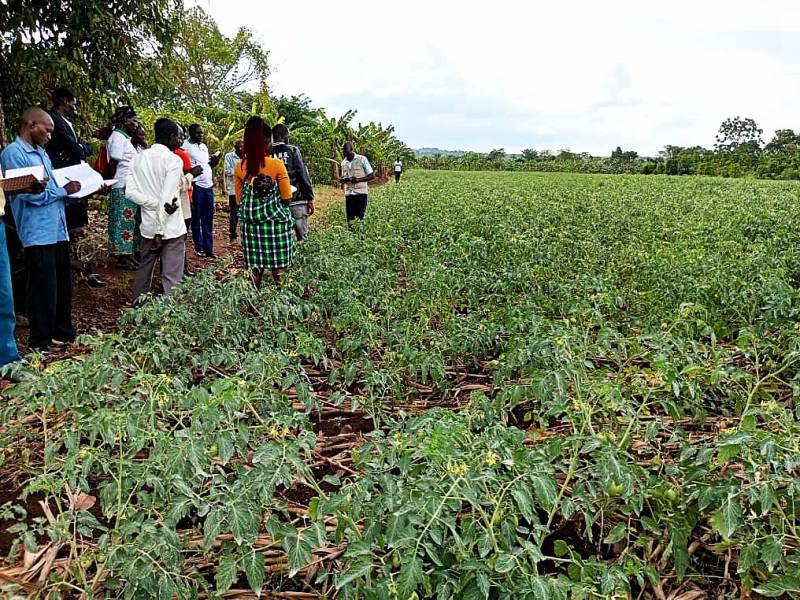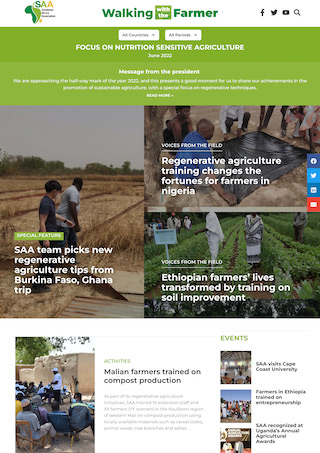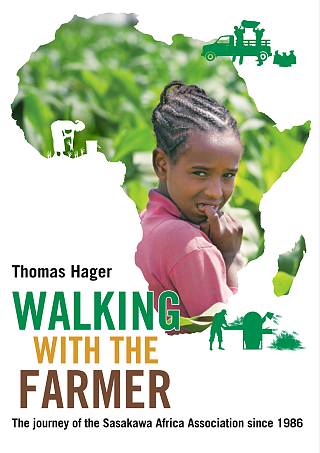Empowering OSCA Leaders through Learning Visits in Uganda

In September and October 2024, SAA-Uganda, under the Project for Revitalization and Digitalization of Multipurpose Agricultural Cooperatives (OSCAs) in Uganda, supported by the Ministry of Foreign Affairs, Japan (MOFA), organized two learning trips. These visits aimed to equip 12 leaders from SAA's One Stop Center Associations (OSCAs) and farmers from Lango and Karamoja regions, covering Kole, Otuke, Napak, and Abim districts, with modern agricultural techniques.
The learning visits, spanning a one-day trip to Zirobwe Kalagala Multipurpose Youth Cooperative (ZIKA) in Luwero District and another one-day trip to the Mubuku Resettlement and Irrigation Scheme in Kasese District, focused on advancing high-value crop production, effective irrigation management, and market-oriented farming strategies. These visits were designed to address critical challenges in Uganda's agricultural sector while inspiring innovative farming techniques and cooperative management practices.
 Participants of the learning visit explore the ZIIKA Input Shop, observing its business model and practices in agricultural input distribution.
Participants of the learning visit explore the ZIIKA Input Shop, observing its business model and practices in agricultural input distribution.The learning visit in Luwero was to explore the untapped potential of horticulture. This provided insights into profitable vegetable production, including the use of high-yield tomato and onion varieties to scale production and enhance knowledge sharing. Participants observed ZIKA’s operational models, such as the Village Agent Model, which leverages youth networks to enhance input distribution and sales, and the Lead Farmer Scheme, which promotes peer-to-peer learning. A highlight of the visit was a hands-on demonstration by a farmer earning over 10,800 USD from rain-fed tomato farming for each harvest. This practical example highlighted the financial viability of focusing on high-value crops, particularly in regions like Otuke and Abim that lack irrigation infrastructure. By adopting these approaches, OSCAs aim to scale vegetable production, diversify incomes, and build resilient agricultural systems.
 Mubuku farmers harvest trays of ripe tomatoes destined for markets at the Uganda-Congo border, fetching USD 22 per tray.
Mubuku farmers harvest trays of ripe tomatoes destined for markets at the Uganda-Congo border, fetching USD 22 per tray.The learning visit to the Mubuku Resettlement and Irrigation Scheme in Kasese showcased the critical role of irrigation in ensuring consistent yields and the potential for market connectivity to boost farmer incomes. Mubuku’s success in cultivating crops like rice, maize, tomatoes, and onions under a reliable irrigation system offers a model of efficiency and sustainability. Participants learned how the integration of irrigation with systematic leadership enables large-scale, market-oriented production. Additionally, the scheme’s emphasis on diversified farming, blending crops with livestock production, highlighted a holistic approach to income generation.
Both learning visits were centered on addressing key challenges faced by OSCAs and farmers, including low productivity, limited market access, and inadequate extension services. By applying these insights, OSCAs can better position themselves as hubs for agricultural innovation and entrepreneurship, directly benefiting their members and communities. “Our visit revealed the power of organized leadership and advanced irrigation practices,” shared Daniel Etem, the team leader. “It was inspiring to see how large-scale farming is being used as a tool for sustainable livelihoods.”
As farmers and OSCAs adopt these lessons, the relevance of such targeted learning opportunities becomes clear: they are the building blocks of a sustainable agricultural future.
SAA Publications

E-newsletter
"Walking with the Farmer"
SAA publishes a bimonthly e-newsletter reporting on SAA activities.

SAA history book
"Walking with the Farmer: The journey of the Sasakawa Africa Assoication since 1986"
This book chronicles the history of SAA from its inception to the present.

Annual Report
Annual Report FY2023
Annual Report FY2023 is available here.





